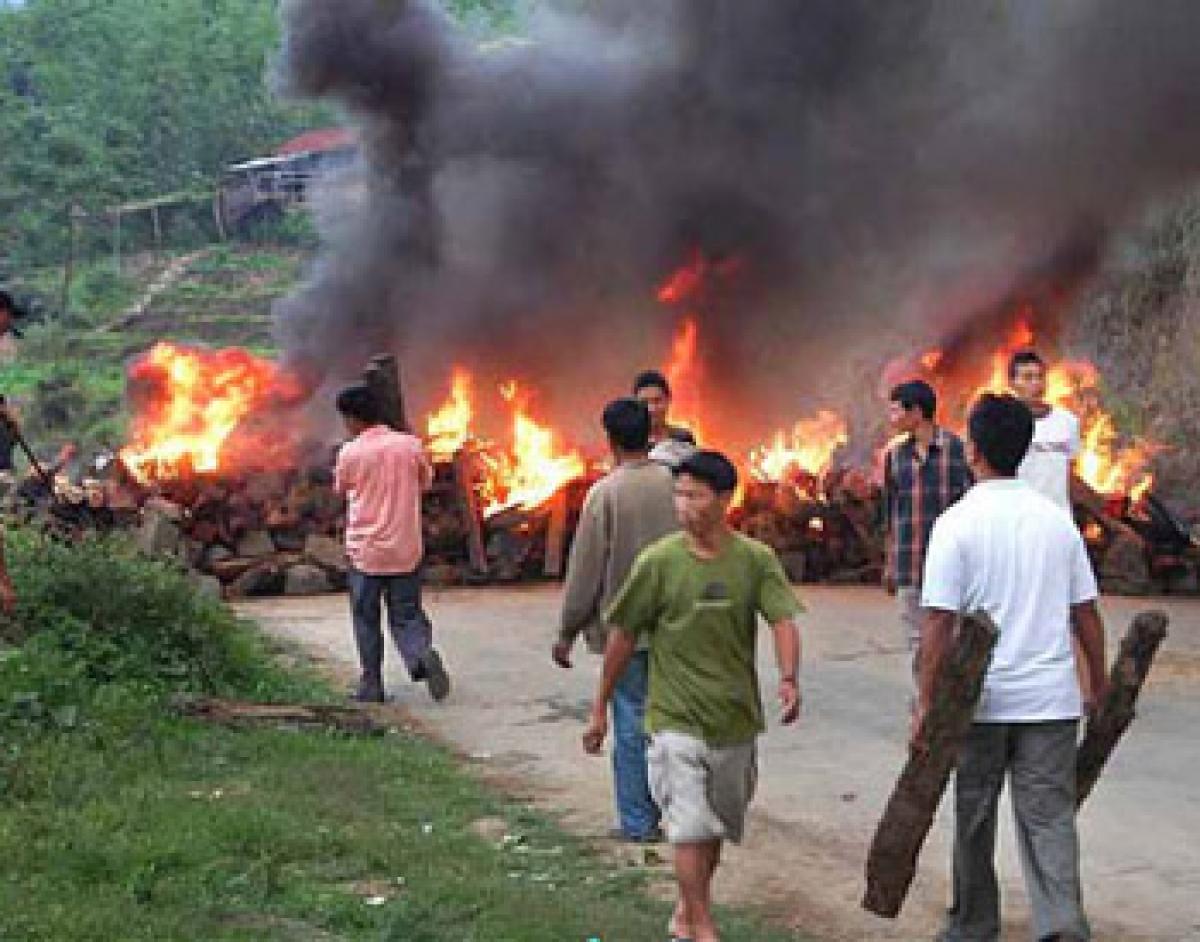Live
- Punjab DGP, MHA official request farmer leader Dallewal to end 20-day fast
- Stage Collapse During Swearing-In Ceremony of KUDA chairman in Kakinada
- Govt unveils ‘Jalvahak’ to boost inland waterways
- List of criminals: Delhi BJP chief on AAP panel of 38 candidates
- PSBs in India clock record Rs 1.41 lakh crore in net profit in FY24
- Telangana Government Announces Key Development Plans: Bhatti Vikramarka
- Crackdown on illegal poppy farming in Manipur: Assam Rifles destroyed 6,228 acres in 5 years
- South Korea's ruling party leader cancels press conference amid calls for resignation
- AIADMK's big meet discusses 2026 polls, prospective alliances
- BJP questions Congress-Shiv Sena (UBT) alliance over Aaditya Thackeray's Savarkar-Nehru remark
Just In

Manipur’s woes find no echo in Delhi . More than a month has passed since the public uprising and subsequent agitation in Churachandpur district of Manipur after three controversial bills were passed by the state government on August 31.
.jpg) More than a month has passed since the public uprising and subsequent agitation in Churachandpur district of Manipur after three controversial bills were passed by the state government on August 31. The three bills are the Protection of Manipur People's Bill 2015, the Manipur Shops and Establishment (Second Amendment) Bill 2015, and the Manipur Land Revenue and Land Reforms (Seventh Amendment) Bill 2015.
More than a month has passed since the public uprising and subsequent agitation in Churachandpur district of Manipur after three controversial bills were passed by the state government on August 31. The three bills are the Protection of Manipur People's Bill 2015, the Manipur Shops and Establishment (Second Amendment) Bill 2015, and the Manipur Land Revenue and Land Reforms (Seventh Amendment) Bill 2015.
The contention and huge uproar over the three bills were echoed in all the five tribal hill districts in the state - Churachandpur, Chandel, Tamenglong, Senapati and Ukhrul. Significantly, the tribal people asserted that the undemocratic passing of the three bills impinged upon their basic constitutional rights under Article 371C of the Indian Constitution, wherein administration of the hill areas lies with the President and that executive powers of the union are extended to the said areas.
Moreover, the newly introduced Protection of Manipur People's Bill 2015 strictly limits its "citizenship" to the census report of 1951 and categorically termed "people" who are recorded in the 1951 census as "natives". This has caused a deep resentment among the tribal people in the hills. According to the cut-off year, many would be left out of the "native list."
Given the geo-physical and developmental challenges, where the remote tribal areas are isolated, it is a well known fact that the census record cannot and will not give accurate data. It is of utmost importance to also underline here that after more than 60 years of India's independence, India is yet to ascertain and draw its International boundary lines in the northeastern sector. The 35-km stretch of international border in the Manipur sector is yet to be demarcated on the ground.
The state assembly passed the said bills without any debate or opposition in the assembly. In fact, there is no opposition party in the Manipur state assembly. Out of the 60 legislative members, 40 are from the Congress, while 20 are from regional parties or state parties such as All India Trinamool Congress, Manipur State Congress party and Naga People's Front. Even the exclusive Hill Areas Committee, consisting of the tribal legislative members, was reportedly a silent spectator to the passing of the bills.
Their silence was interpreted as "acceptance" by the ruling government and supported by the "majority" non-tribal valley dwellers. The tribal people interpreted this as "incompetence" and "dysfunctional" and directed their anger against the tribal elected representatives, subsequently burning down their residences and socially boycotting the 20-odd tribal MLAs.
Historically, the valley administration has never been extended to the tribal hill areas even during the British colonial rule before 1947. This continued even after independence and statehood. While the tribal village chiefs governed and administered the hill areas in pre-Independence era, in the post-statehood and India's independence time the hill areas were administered under Article 371C of the Indian Constitution. The random, umbrella bills for the entire state is a grave mistake on the part of the state legislators in a state as diverse as Manipur.
Till today, groups of young people were running amok, destroying vehicles and burning houses. As recently as on October 13 midnight, a school building was burned down in Lamka by a group of angry youths. As it stands, the bodies of the nine people who died in the violence following the passing of the bills are still lying unclaimed in the hospital morgue. Curfews are imposed at any time by any group.
By Ninglun Hanghal

© 2024 Hyderabad Media House Limited/The Hans India. All rights reserved. Powered by hocalwire.com







